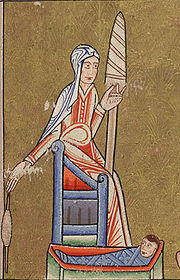A Time Before Jet Lag
 Saturday, August 18, 2012 at 12:58AM
Saturday, August 18, 2012 at 12:58AM 
I've been dipping into this massive tome by Norman Davies, Europe: A History, that a family friend gave us before we left California. This passage jumped out at me this morning:
Imagining the Middle Ages is, indeed, the problem. Historians have to stress not just what the medieval scene contained but also what it lacked. In its physical surroundings, it lacked many of the sights, sounds, and smells that have since become commonplace. There were no factory chimneys, no background traffic noise, no artificial pollutants or deodorants. Tiny isolated settlements existed in an overpowering wilderness of forest and heath, in a stillness where a church bell or the lowing of a cow could carry for miles, amidst a collection of natural but pungent whiffs from the midden and the wood fire. People's' perceptino of those surroundings lacked any strong sense of discrimination between what later times would call the natural and the supernatural, between fact and fuction, between the present and the past. Men and women had few means of verifying the messages of their senses, so all sorts of sensations were given similar credence. Angels, devils, and sprites were as real as one's neighbours. The heroes of yesterday, or of the Bible, were just as present (or as distant) as the kings and queens of one's own country. (432)
When I try to envision this particular neighborhood of the past, it's that isolation that I find most fascinating. It's true that sometimes we tend to overdo it in our conception of those times--genetic analysis, along with archeaology, makes it very clear that people have been moving and mixing for time immemorial--but for an ordinary person, especially if that person was female, life might easily be lived in an area no bigger than a day's travel. Beyond that would all be rumors, fireside stories, and hearsay.